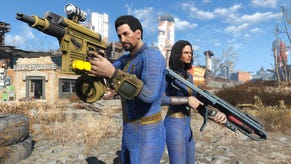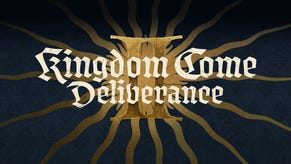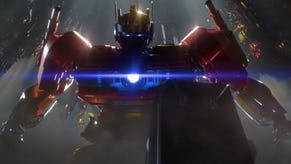Schafer: Publishers aren't bad, but indies must look elsewhere
Double Fine boss Tim Schafer has said his studio's crowdfunding initiative wasn't inspired by negative experiences with publishers so much as the realities of independent development.
"I feel like the obligation is to be as creative as possible, which is a really unique force to have. It’s intimidating that I think the audience for this is going to want us to go nuts and do something really, really creative and not play it safe."
"I'm not vilifying or saying publishers are evil, or that they're not doing what they should be doing," Schafer told IndustryGamers.
"It's just it's inherent in that set up that they risk a lot of their own money and, therefore, they need to invest in mitigating that risk and there's a cost or a burden with that risk mitigation that affects development in a negative way.
"But I don't think that they're jerks – well some of them are, the ones that sue us," he added, probably referring to Activison's suit against Double Fine following its cancellation of Brütal Legend.
Although Schafer noted that there are "great people at the publishers" who are "doing the right thing for themselves," he doesn't feel the model necessarily gels with Double Fine.
"Our MO is we like to make up a lot of stuff. We like to make up new worlds and characters and we like to come up with new ideas, and so that goes against that kind of risk mitigation because when you sand off all the sharp edges and you curb your ideas just to play a safe thing and that's not what we want to make," he said.
"This is allowing us to make things and to take risks – every game can be totally different, like Happy Action Theater; it's completely different than anything we've made before and anything that has been made before and I think that's what people who really like our company want us to do. They don't want us to play it safe."
Publishers and gamers have different expectation when backing a project, Schafer said.
"If I took money from a publisher, then I'd say, 'Hey, publisher. You're going to risk all your money on me. I'm going to try my best to make you some money,'" he explained.
"But to my creative self and my team and my fans I'm like, 'I'm going to make a great game.' So for the fans, I'm saying, 'I'm going to make the most awesome game possible.'
"I feel like the obligation is to be as creative as possible, which is a really unique force to have. It's intimidating that I think the audience for this is going to want us to go nuts and do something really, really creative and not play it safe."
That said, Double Fine is aiming to make money from the new adventure.
"The reason to make it profitable is that we want to do this again. We want to show that it works. It's not a charity; it's a business plan. Just an innovative business plan, and we want to make them work and do more of them," Schafer said.
Speaking to Hookshot, the developer said even supposedly indie-friendly mainstream platforms like the PlayStation Network and Xbox Live Arcade haven't lived up to their initial promise.
“Ever since I played Geometry Wars I thought, what a great new portal. But it seems that this year, the idea didn’t explode like it should have," he said.
"Back when Castle Crashers came out, it seemed it was going to grow and grow. I just wish there was more support, more marketing, more placement on the dashboard. It could have been our own little Sundance Film festival, a great sandbox for indie development."
Instead, Schafer believes the indie community has moved on to more supportive environments - including those it manufactures for itself.
“We’re figuring out how to fund and distribute games ourselves, and we’re getting more control over them. Those systems as great as they are, they’re still closed. You have to jump through a lot of hoops, even for important stuff like patching and supporting your game. Those are things we really want to do, but we can’t do it on these systems. I mean, it costs $40,000 to put up a patch – we can’t afford that!" he exclaimed.
"Open systems like Steam, that allow us to set our own prices, that’s where it’s at, and doing it completely alone like Minecraft. That’s where people are going."
Double Fine's Kickstarter has raised over $1.7 million at time of writing, although that figure may well be out of date within a few hours.




.jpg?width=291&height=164&fit=crop&quality=80&format=jpg&auto=webp)





